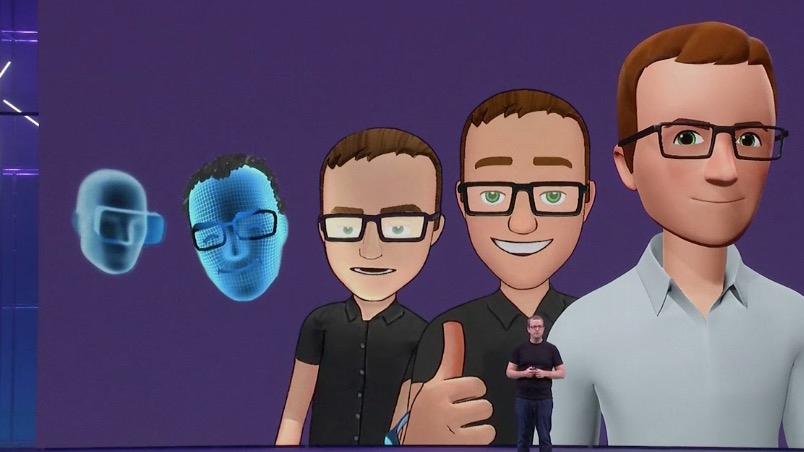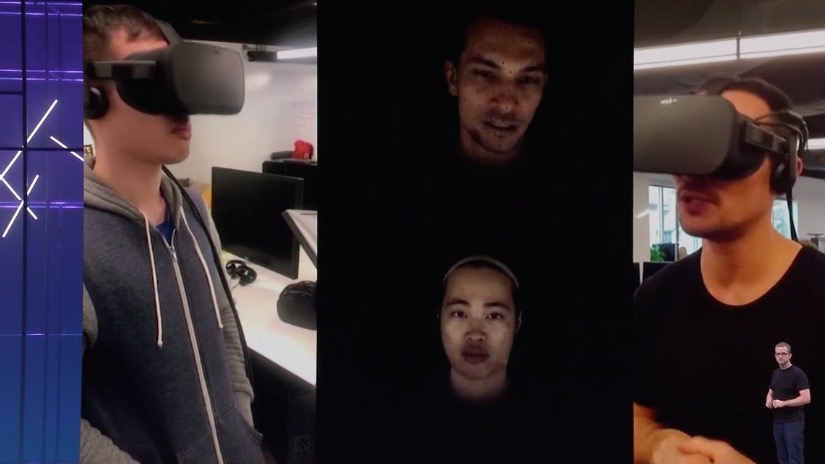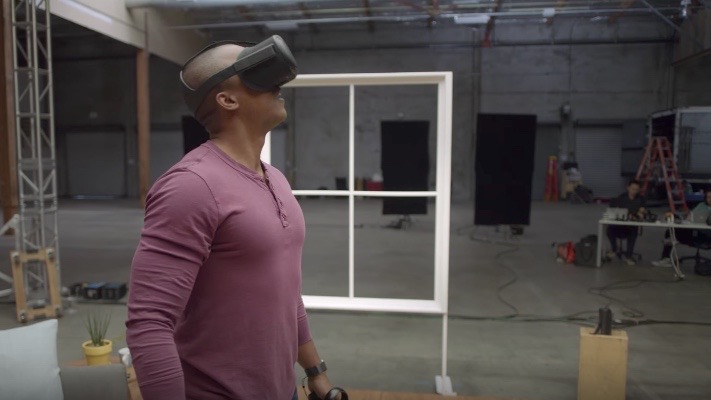Facebook wants you to look more realistic in virtual reality
But how real is too real?

The progression in how users are represented in virtual reality (VR) has come a long way since the floating blue blobs of those early days, but Facebook wants it to go even further.
During the Day 2 keynote at F8 2018, Facebook CTO Mike Schroepfer took a few minutes to discuss how the company is working to develop ever-more realistic VR avatars, which represent users when using products like Oculus Rift and Oculus Go.
One area where Facebook has improved is in mouth tracking, helped along by advancements in the company's artificial intelligence (AI) and VR technologies.
By more closely matching the actual mouth movements of users when they're speaking, the digitally rendered avatars appear more life-like.
But, Schroepfer noted, avatars still aren't indistinguishable from reality, and to that end he said Facebook is working on photo-realistic renderings of users that take place in real-time thanks to AI.

As you can see in the image above, Facebook's cartoony avatars are replaced by much more realistic representations, though there's still something computerized about the renderings that keep them from looking truly life-like.
Crucially, though, these new avatars could pick up on expressions that cartoons simply can't, allowing users to not only express themselves more accurately in a VR space, but allow for deeper connections with other users.
Get daily insight, inspiration and deals in your inbox
Sign up for breaking news, reviews, opinion, top tech deals, and more.
Of course, go too far into photo-realism, and you enter uncanny valley territory, so it's a fine line Facebook will have to walk as it looks to create avatars that more accurately represent its VR users.
Schroepfer did note this work is still in the early stages, so we're likely a ways off before photo-realistic avatars start popping up in experiences Oculus Rooms and Facebook Spaces.
Project Santa Cruz-in'
Schroepfer also offered a quick tease of one of the most intriguing products in the Facebook and Oculus roadmap: Project Santa Cruz.
Schroepfer said the wireless, standalone headset is in the hands of third-party developers right now and that Facebook will have "exciting updates" to share later this year.

He left it at that, but the timing of "later this year" would line up with the Oculus Connect conference, which usually takes place in October.
It wouldn't surprise us at all to see a final version of Project Santa Cruz unveiled then, and possibly have the headset go on sale at that time.
We tried Project Santa Cruz (likely a codename) at last year's Oculus Connect and were impressed with its ability to track you around a room and its lack of a wire. This allowed near-total freedom of movement without a major drop-off in the quality of the experience.
The standalone Oculus Go just went on sale, and while it offers affordable and accessible VR, we've still got our eyes on Project Santa Cruz and the VR experience it promises to offer.
- Read our full Oculus Go review!
Michelle was previously a news editor at TechRadar, leading consumer tech news and reviews. Michelle is now a Content Strategist at Facebook. A versatile, highly effective content writer and skilled editor with a keen eye for detail, Michelle is a collaborative problem solver and covered everything from smartwatches and microprocessors to VR and self-driving cars.
